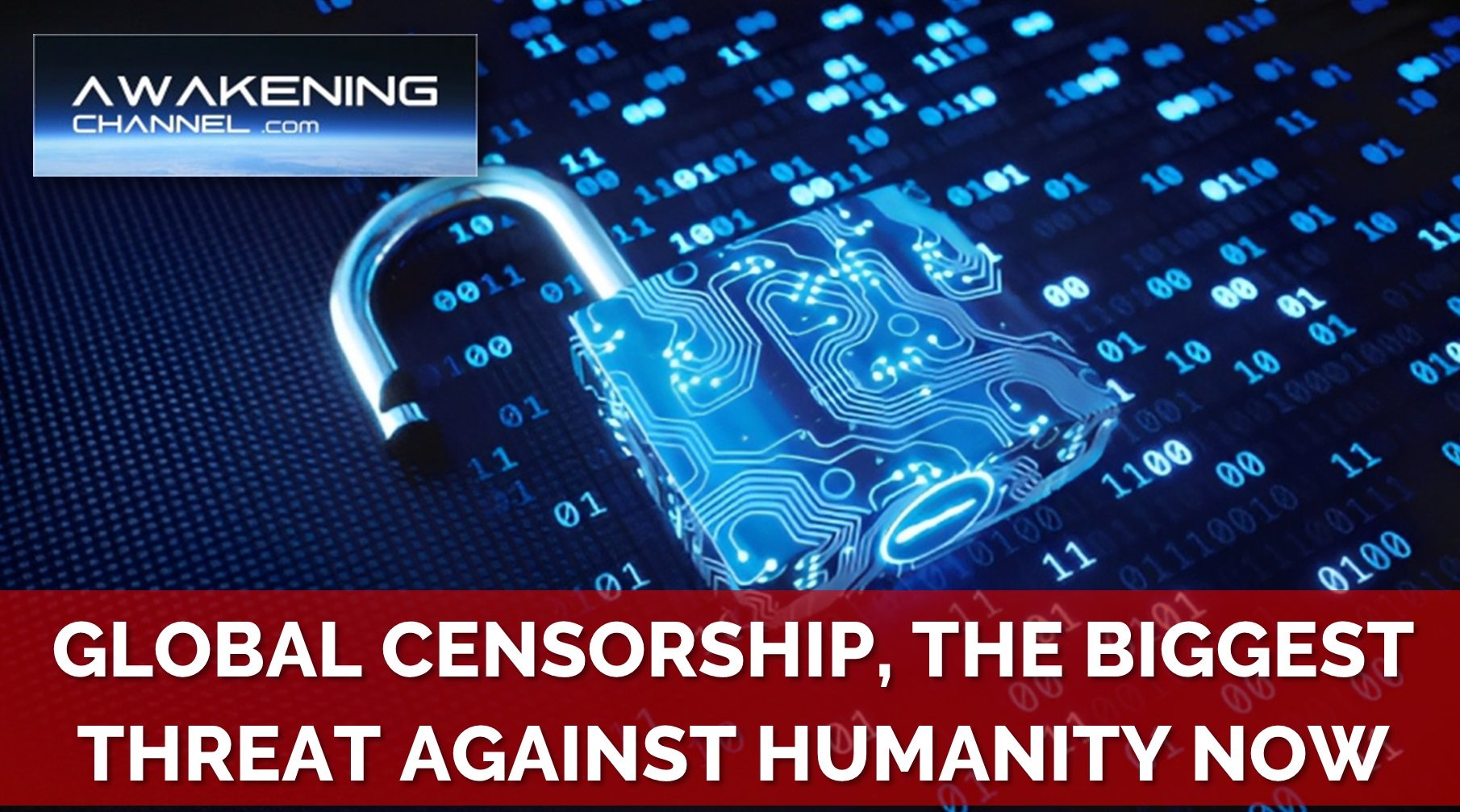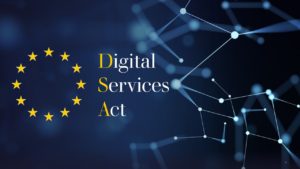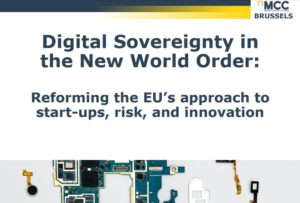We are in the midst of an unprecedented battle, where our very fundamental rights are under relentless assault.
The alarming truth is, many remain blissfully unaware.
Context
We are acutely aware of the significant impact that alternative media outlets, like our own, have had on thwarting the globalists’ objectives during their recent major endeavor – the plandemic and the ‘vaccine’ rollout.
Furthermore, we recognize that more formidable challenges lie ahead, surpassing the scale of the preceding crisis.
Anticipated events include another ‘plandemic,’ additional ‘vaccine’ initiatives, the impending risk of a cyber-pandemic, strategically crafted to reconfigure the internet with a comprehensive, China-style system of control and the imminent introduction of Central Bank Digital Currencies.
In order to encounter minimal resistance during their impending large-scale crises, the globalists are actively pursuing a strategy to control the dissemination of information. This endeavor precisely characterizes their current actions. Their current focus is on curtailing freedom of speech, and the consequences for humanity could be catastrophic.
National legislations have already been set in motion, and there are strong indications that international regulations will follow suit in the coming year. A new treaty with the United Nations subsidiary, the World Health Organization, could potentially grant them expanded powers for global censorship.
Introduction
In the ever-evolving landscape of the internet, the year 2022 marked a turning point for freedom of speech. The European Union’s Digital Services Act (DSA), which came into effect on 16th November 2022, imposed strict regulations on very large online platforms (VLOPs) with more than 45 million monthly active users. Platforms such as Twitter, Facebook, and Instagram were now required to swiftly remove illegal content, hate speech, and disinformation under the threat of hefty fines. This enforcement of content regulation not only impacted Europe but set a precedent that could extend globally.
The EU’s Global Regulatory Influence
The European Union has emerged as a global regulatory superpower, dictating how companies worldwide must behave to operate within Europe, the world’s second-largest market. Its regulatory standards often become the global standard, a phenomenon known as the “Brussels effect.” The General Data Protection Regulation (GDPR), implemented in May 2018, exemplifies this global influence. GDPR’s privacy laws, including explicit consent for data processing, have become the standard worldwide. With the DSA, the EU aims to secure a similar global adoption of its content regulation standards.
Strengthening Enforcement Capabilities
While the EU’s enforcement of GDPR has been somewhat limited, the DSA possesses significant enforcement capabilities. The European Commission is bolstering its internal industry watchdog, expecting to have over 100 full-time staff by 2024. Additionally, contract workers and national experts will supervise the operations of Big Tech platforms. The cost of this enforcement operation will be borne by the VLOPs themselves, contributing up to 0.05% of their global annual turnover to the Commission. This significant investment demonstrates the EU’s commitment to enforcing its content regulations. It amounts to what EU internal-markets commissioner Thierry Breton calls a ‘historic moment in digital regulation’
A Concentration of Power
The regulation of the DSA falls under the purview of the European Commission, rather than an independent regulator. This concentration of power raises concerns about democratic accountability. Moreover, the DSA includes a crisis-management mechanism, granting the Commission the authority to direct how platforms respond to events such as the Russian invasion of Ukraine. The Commission’s definition of a “crisis” and its potential for abuse is worrisome, considering the EU’s previous use of the “rule of law” against ideological opponents.
Technocratic Evasion of Democratic Accountability
The DSA not only grants the EU immense powers for censorship but also represents a profound technocratic evasion of democratic accountability. The unelected European Commission compels Big Tech to police the internet and impose its values on users without being accountable to the millions of ordinary European citizens. If such draconian censorship were enforced by a national government, citizens could express their dissent through voting. However, this scenario presents a different challenge, as the EU’s technocratic power is being outsourced to Big Tech, evading democratic checks and balances.
Compliance or Exclusion: Big Tech’s Dilemma
Big Tech companies find themselves at a crossroads, compelled to comply with the DSA regulations to maintain operation in Europe. Even outspoken figures like Elon Musk, who once championed minimal censorship and maximal free expression on platforms like Twitter, now align themselves with the goals of transparency, accountability, and accuracy of information set forth by the EU. The EU’s influence has been so significant that it is now instructing Twitter to increase content moderation staff instead of relying solely on algorithmic moderation.
Lack of Accountability and Public Representation
What is most shocking about this scenario is the lack of accountability and anti-democratic nature exhibited by all parties involved. The European Commission justifies its censorship laws as protection against the “harm” caused by unregulated social media companies, while Big Tech complies with these laws to serve its user base. However, neither the Commission nor Big Tech is genuinely accountable to the public they claim to protect or serve. This lack of accountability undermines the principles of democracy and diminishes the voice of ordinary citizens.
The Global Reach of EU Censorship
The EU’s censorship regime, as established by the DSA, has far-reaching consequences beyond Europe. By opening an office in Silicon Valley, the EU aims to forge closer relationships between its regulators and Big Tech. Without its own prominent tech companies, the EU relies on regulatory influence to maintain a global presence. The United States, under President Biden, has expressed intentions to follow suit and implement measures to regulate Big Tech. The DSA has set a precedent for the regulation of online content, and its adoption globally has become increasingly likely.
Call To Action
Regrettably, the concerning reality is that despite awareness of these developments, there seems to be a lack of substantial collective action to counter these emerging challenges.
In light of these pressing concerns, it is incumbent upon us, as individuals and as a collective, to take action. We have seen the power of alternative media in shaping the narrative and resisting the encroachment on freedom of speech. As we brace for even greater challenges, our vigilance and activism must intensify.
Here’s how you can contribute to this crucial effort:
1- Stay Informed: Continue to educate yourself about the evolving landscape of online regulation and censorship. Knowledge is a powerful tool in navigating these complex issues.
2 – Engage: Join or support organizations and initiatives that champion digital freedom and civil liberties. Be part of the conversation and advocate for a free and open internet.
3 – Spread Awareness: Share information about these challenges with friends, family, and colleagues. Encourage open dialogue and critical thinking about the consequences of increasing online censorship.
4 – Support Alternative Platforms: Explore and support alternative online platforms that prioritize free speech and respect for individual privacy. These platforms offer alternatives to mainstream social media.
5 – Stay United: In times of adversity, unity is our greatest strength. Collaborate with like-minded individuals and organizations to amplify your voice and advocate for a free and open digital world.
Remember, the future of the internet and the preservation of democratic principles in the digital age depend on our collective efforts. It’s time to act decisively and protect the values of freedom, transparency, and accountability that underpin a healthy society and a thriving internet.







